
Remakes can breathe new life into classic games, which despite being paragons of their time, are now becoming relics of the past. They represent a chance to update more than graphics and sound, but also gameplay and value to match contemporary standards without compromising the timeless elements for which they were originally known. Karateka, a remake of the 1984 martial arts-themed Apple II game of the same title, is true to its roots but aims unfortunately low in terms of bringing something new to the table.
In Karateka, suitors of the captive Princess Mariko fight their way through a clifftop fortress to liberate her from the evil Akuma. Occasionally the game plays a cutscene of Mariko nervously awaiting rescue while Akuma deploys goons to stop you.
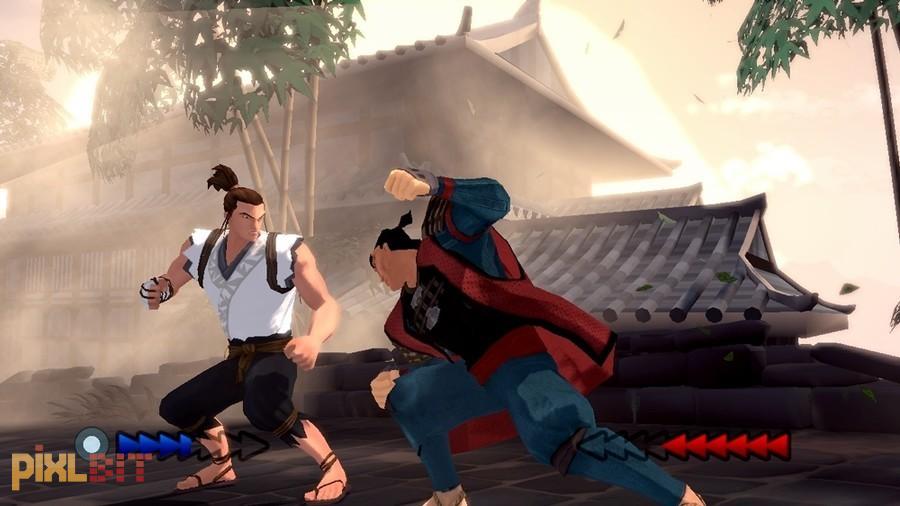
It’s a simple but charming premise highly characteristic of its time (Shortly after the original game was released, an Italian plumber would embark on a similar adventure). With no dialogue to tell the story, the game instead employs more subtle but effective techniques such as facial animations and music to convey Mariko's distress, Akuma's malevolence, and the suitors' heroism.
Once the adventure begins, you move through the fortress along a single, predefined path. Although you're constantly moving forward, I discovered by chance pressing the analog stick forward isn't even required. You can press it down, left, or right and still move forward.
With no branching paths, hidden items, puzzles or other obstacles to speak of, I soon realized navigation serves only to connect the hand-to-hand combat sequences which constitute the actual gameplay, and then I questioned why the game wanted me to control the suitor at all instead of simply initiating fights one by one automatically. I concluded it was probably so I could enjoy the scenery—colorful, cartoon-style imagery of bamboo trees, falling leaves, and waterfalls—and to listen to the excellent soundtrack by Civilization IV composer Christopher Tin.
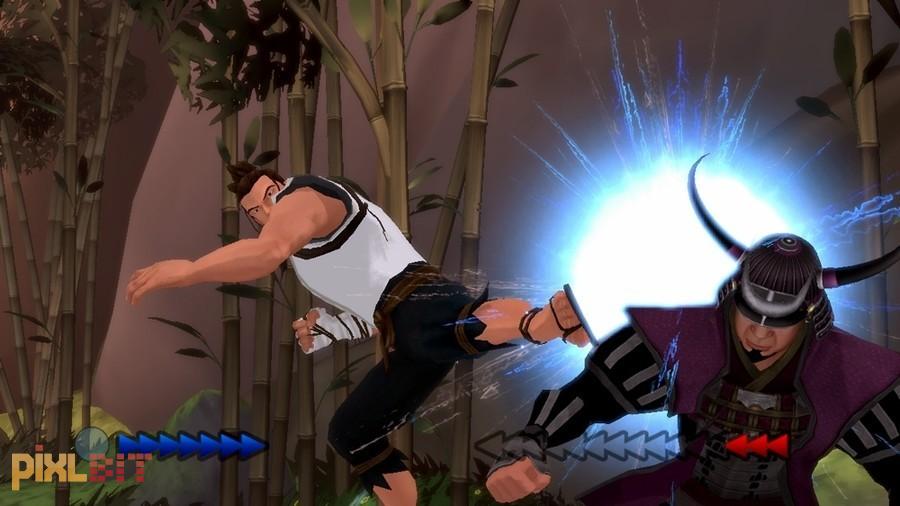
The turn-based combat starts with the enemy unleashing a string of attacks while you attempt to block. Audio cues indicate the number of attacks to expect, with one chime pointing to a single hit and so on. The audio element is clever and gives the combat a rhythm that is easy to learn yet difficult to master. Successfully blocking the enemy’s last attack will leave him open to your own combination of punches and kicks. Performing well causes your chi meter to increase. Once it is full, you can activate a special attack that allows you to perform a combo without first blocking. Saving up the chi meter can be an effective way to prepare for the occasional boss fights. Mariko's flowers, occasionally found between battles, restore a few HP.
Should you die, another suitor will replace you. You start with Mariko's True Love, after which a monk and finally a brute (her second and third choices, respectively) pick up where the last failed. And if the brute fails, you may revive him by deducting points from your running score. Each suitor's animations are different, but all three play the same. The only significant differences are the endings you unlock with each one, and the fact certain suitors are tied to certain achievements.
From start to finish, the base experience lasts about 30–40 minutes, with additional play time to be derived from unlocking achievements (several of which are quite difficult; e.g., completing the game without taking any damage) and climbing the leaderboards.
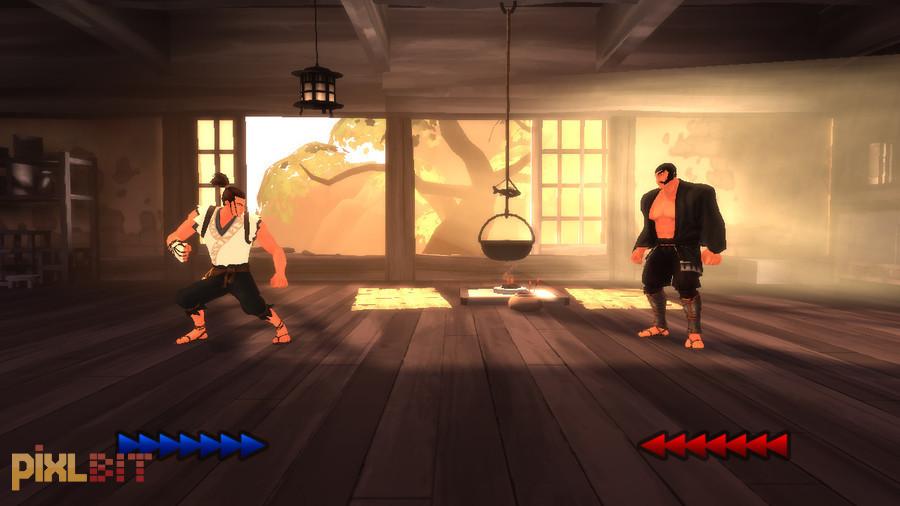
The combat works despite its simplicity, but much like the story and navigation, is again paper-thin. Different fighting styles for each suitor, equipment, more special attacks, and upgrades would all be welcome additions to build upon the anemic gameplay.
I've tried to give credit where credit is due. Most everything Karateka presents is quite lovely. It's true to its source material, presented well, and fun to play while it lasts. But it's also hollow, and for everything it does right, it also misses the chance to do something better. While its simplicity was standard in 1984, perceptions have changed. Now, gamers expect more for their $10.
Both the original and the 2012 version were developed by Prince of Persia creator Jordan Mechner, whose contribution to the remake is his first game development project since 2003's Prince of Persia: Sands of Time.
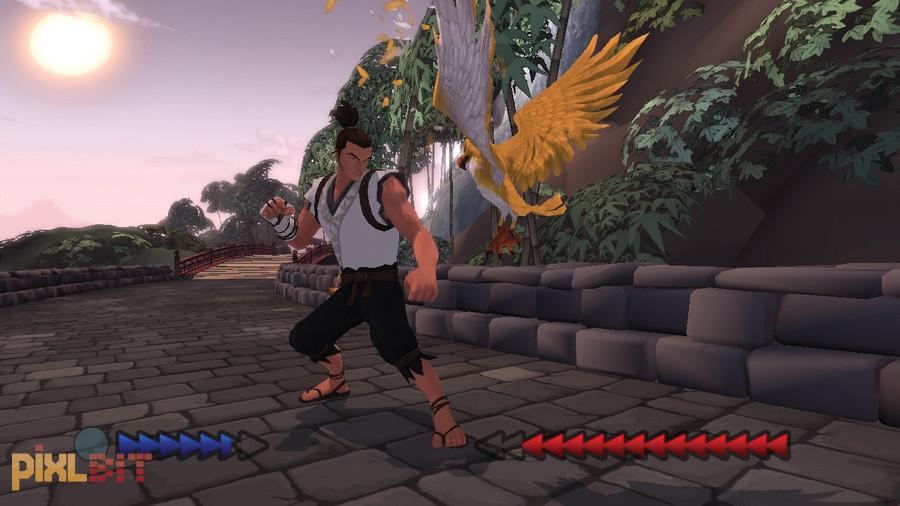
Ironically, Sands of Time was widely recognized as an ambitious and successful revitalization of an aging series. Obviously having the support of a major publisher afforded greater freedom to bring his vision to life, but it's a shame he wasn't so ambitious with revisiting Karateka too.
Ultimately, the remake is safe—and as a result, it's also forgettable and unfulfilling. Fans of the original might find enough value from the updated graphics to justify the purchase. I never played the original myself, so I experienced the remake without the aid of nostalgia and found it to be a questionable buy. If it's on sale for half off, go for it. Otherwise, there are better ways to spend your money.













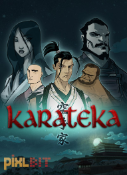

Comments